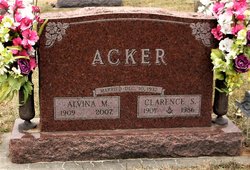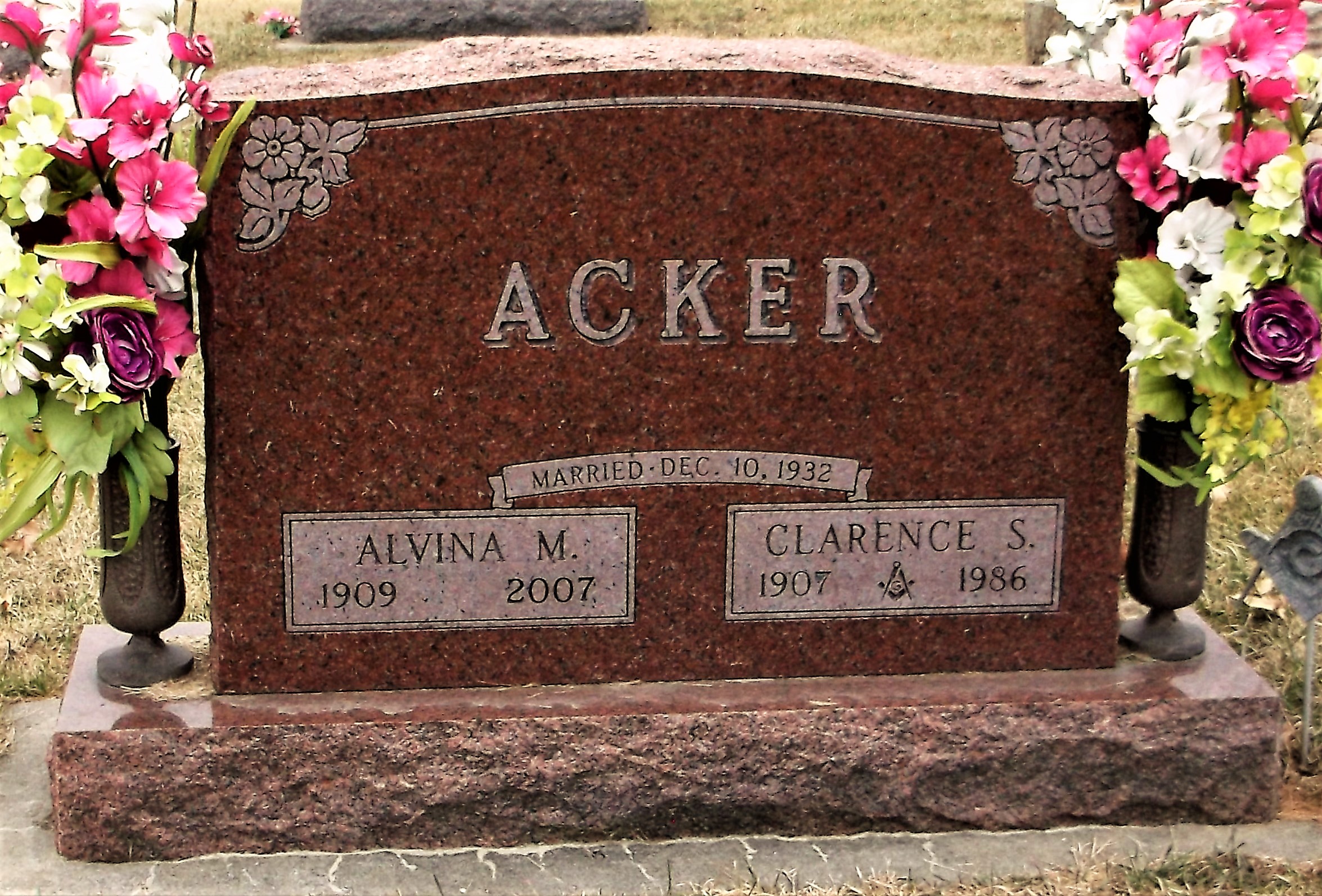Clarence and Alvina Acker were married at the Lutheran Church in Omaha, Nebraska December 10, 1932. Minnie Ortgies Aupperle and Leroy Acker and wife went along to stand up with them. There was about a foot of snow on the ground and it was very cold and snowing when they left in the morning. They got back to Atlantic that evening and stopped in town. The first thing they heard was that the banks had closed their doors. Clarence had money in one bank and Alvina in the other. All the money they had was in their pockets. They moved in with his Mother and Dad, the Thad Ackers. Then there were several dry and hot years. Also the chinch bugs were taking the crops. Poisoned bran was put on the edge of the hay fields to keep them out of the cornfield. Then a few years later came the rationing of all kinds of things. Everyone had rationing books and was allowed so many stamps for a family. For one thing they used syrup instead of sugar.
In the winter of 1935-36 there was one of the worst snows. The roads were closed. Bob sleds and teams went across fields to get to town to get groceries. Their first few years were not easy.
Clarence and Alvina Acker were married at the Lutheran Church in Omaha, Nebraska December 10, 1932. Minnie Ortgies Aupperle and Leroy Acker and wife went along to stand up with them. There was about a foot of snow on the ground and it was very cold and snowing when they left in the morning. They got back to Atlantic that evening and stopped in town. The first thing they heard was that the banks had closed their doors. Clarence had money in one bank and Alvina in the other. All the money they had was in their pockets. They moved in with his Mother and Dad, the Thad Ackers. Then there were several dry and hot years. Also the chinch bugs were taking the crops. Poisoned bran was put on the edge of the hay fields to keep them out of the cornfield. Then a few years later came the rationing of all kinds of things. Everyone had rationing books and was allowed so many stamps for a family. For one thing they used syrup instead of sugar.
In the winter of 1935-36 there was one of the worst snows. The roads were closed. Bob sleds and teams went across fields to get to town to get groceries. Their first few years were not easy.
Family Members
Sponsored by Ancestry
Advertisement
Advertisement















